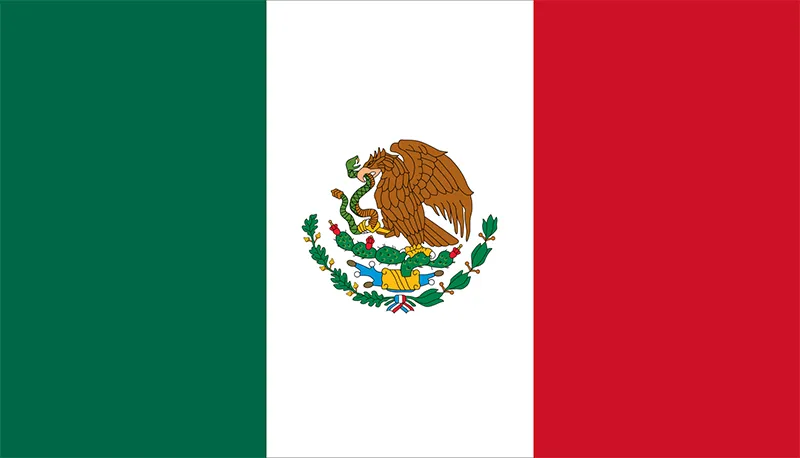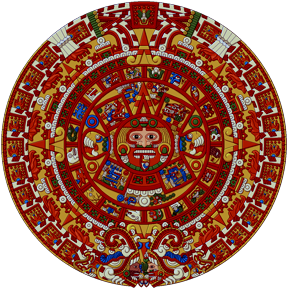Aztec religious beliefs and practices
Gods
The Aztecs were polytheists.
Tlaloc
god of rain, hurricanes, fertility and lightning
babies drowned for sacrifice
Huitzilopochtli
god of war, thunderstorms, fire and sun
blood sacrifice
role in the founding of Tenochtitlan
Aztecs were losing hope
Huitzilopochtli appeared to priests in a vision
Told them to settle where they saw an eagle perched on a cactus growing from a rock eating a snake
they saw this on the island in Lake Texcoco and founded their city there
Tenochtitlan means place of the cactus fruit
the eagle on a cactus became their symbol
seen on Mexican flag today

Quetzalcoatl
god of agriculture, arts, love, science and wind
said to return in 1519 to restore peace to the Aztec empire
Mictlantecuhtli
god of death
lord of Mictlan
Mictlan = underworld
Xipe Totec
god of agriculture, fertility, seasons and renewal
flayed himself to give humanity food
Sacrifice
believed that unless they made offerings of blood and human lives to the gods, the Sun would die and the world would come to an end
also offered gifts such as maize and marigolds to the gods
Method
Who?
Aztec warriors would capture prisoners for sacrifice
extreme cases where family might offer someone in order to procure favours from the gods
rebellious slaves
between 10 000 - 50 000 could be sacrificed each year
Where?
Top of Templo Mayor
Templo Mayor:
largest temple in Tenochtitlan.
very magnificent temple made of monumental stone
pyramid like
made for Huitzilopochtli and Tlaloc
How?
held on a stone tablet by 4 priests
fifth priest slice abdomen with ceremonial knife, although the cut would often go through the diaphragm
fifth priest pulls beating heart out
heart was placed in special bowl and body was thrown down the stairs of the temple
body was taken by the owners to be eaten
Tzompantli
archaelogists discovered remains in Mexico City (Tenochtitlan)
enormous rack of skulls, rows of skulls and mortar lined up on vertical posts connected by crossbeams
discovered in 2015
hundred of skull fragments were excavated
35m x 14m x 4.5m (w x l x h)
Priests
boys joined priesthood at 17
painted body black and pierced himself with cactus spikes
drank special herbs to have holy visions
most important honour was to perform human sacrifice
emperor was great priest
Calendars
Types of calendars
The Aztecs used three types of calendars:
Ritual calendar
ritual calendar
260 days
tracked rituals
determined lucky or unlucky days for particular events
Solar calendar
solar calendar
365 days
18 months of 20 days
each period of 20 days marked new festival
agricultural purposes
hollow days
five additional unnamed days at the end of each year
thought be unlucky

52-year calendar
52 year calendar
combination of ritual and solar calendars
every 52 years/18 980 days…
solar calendar would end at the same time as the ritual calendar
calendar for that year would become the 52 year calendar
used for performing the ‘new fire ceremony’
Extra notes
Quetzalcoatl
thought to have made the calendar and books
thought to have left the city
prophesised to return as a light skin bearded man on the reed year 1
reed year 1 (Aztec Calendar) = 1519 (western calendar)
Aztecs believed in a cyclical view of time with constant beginnings and ends